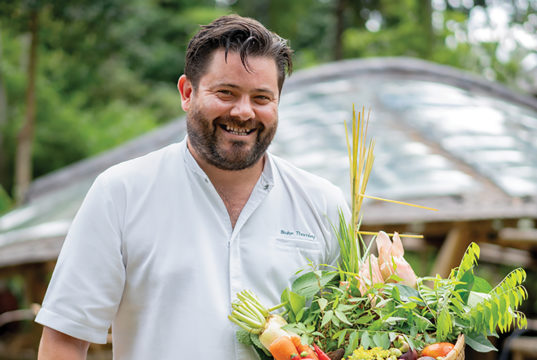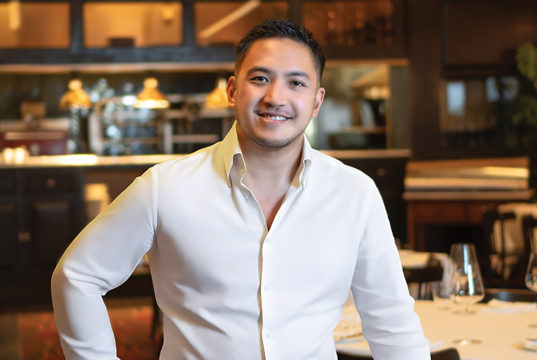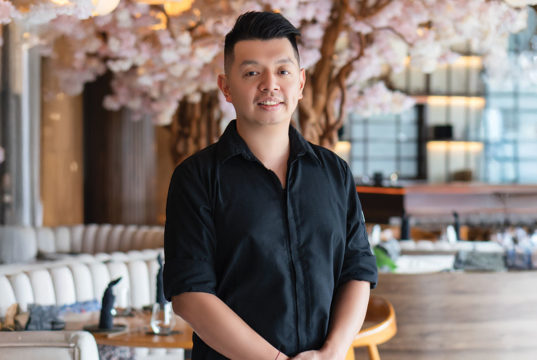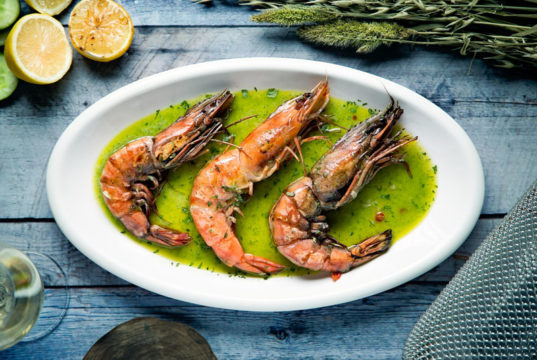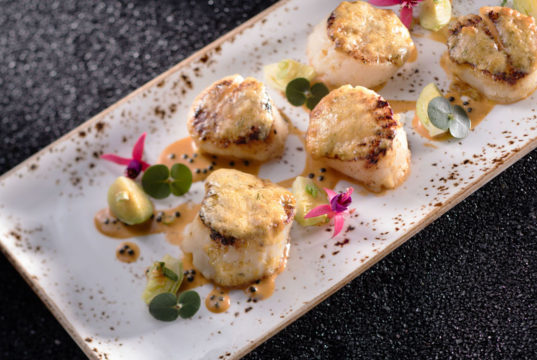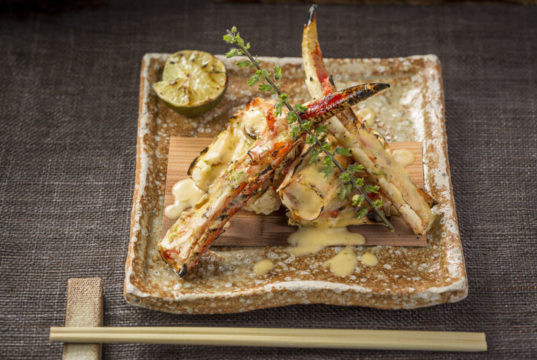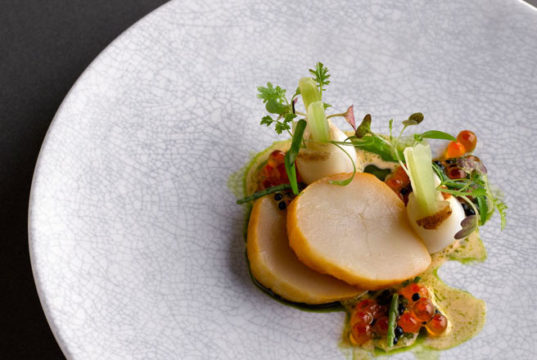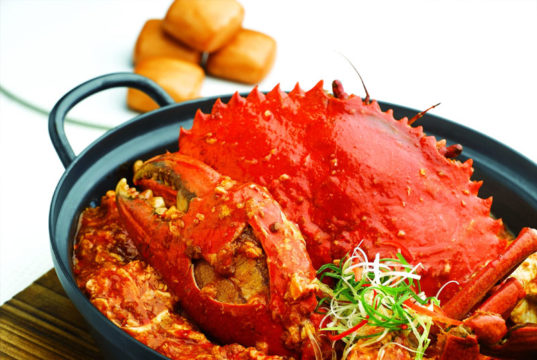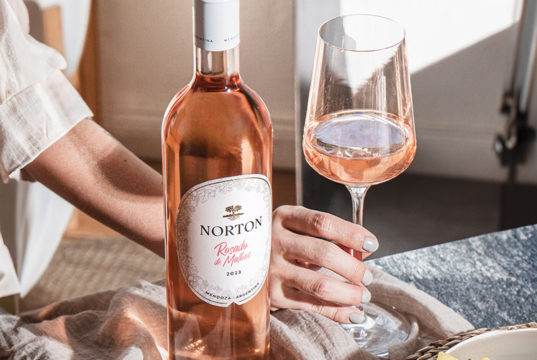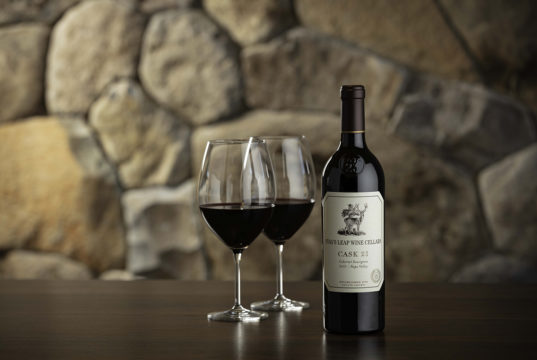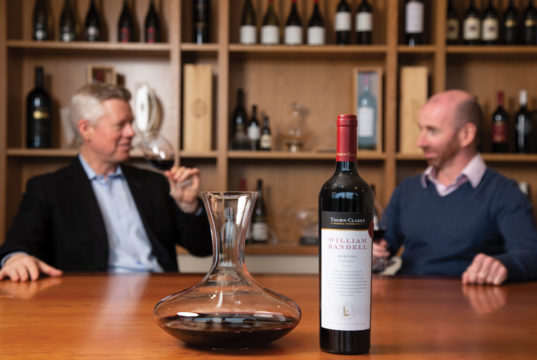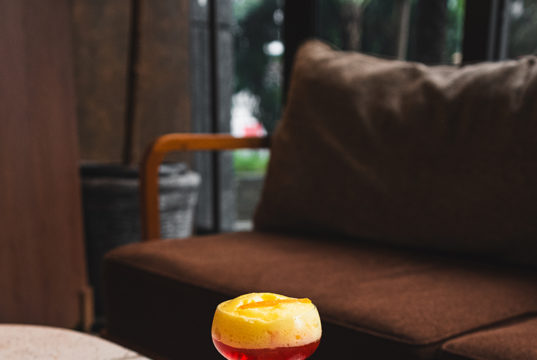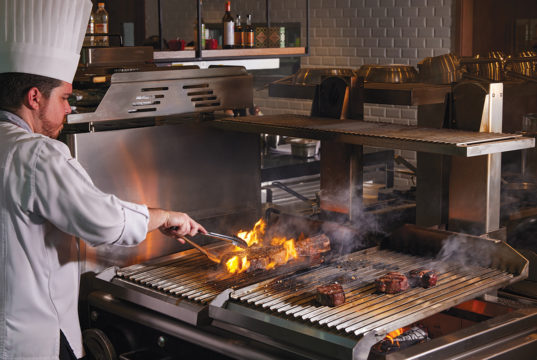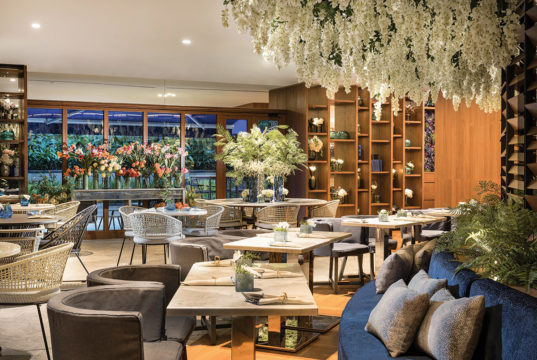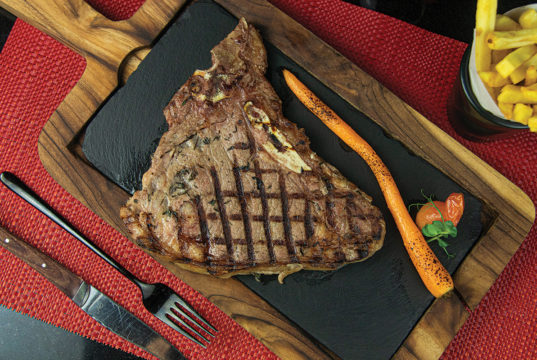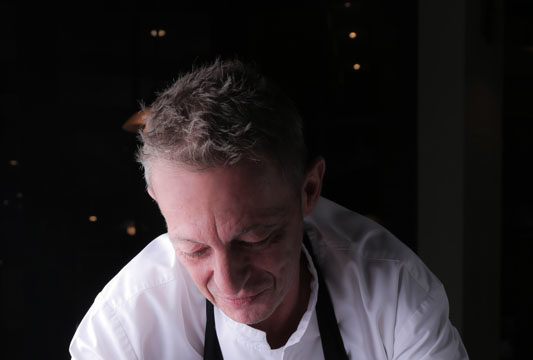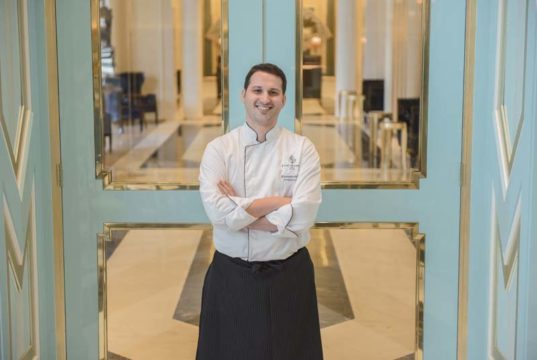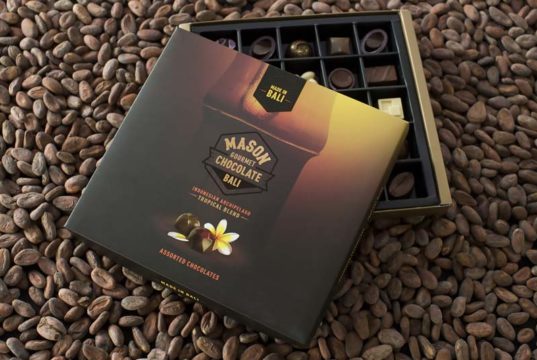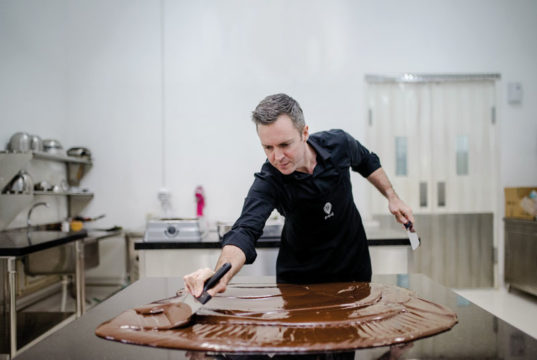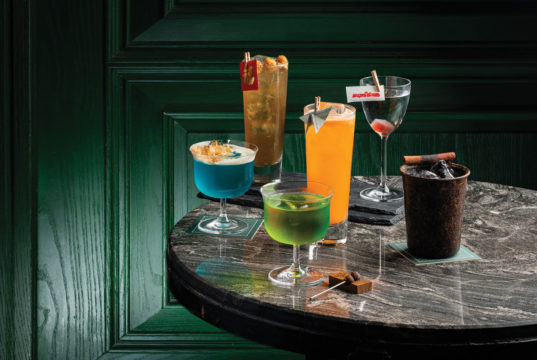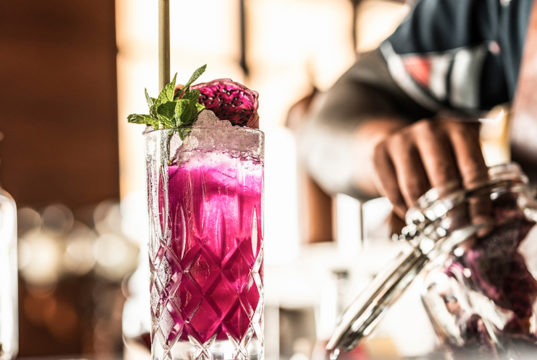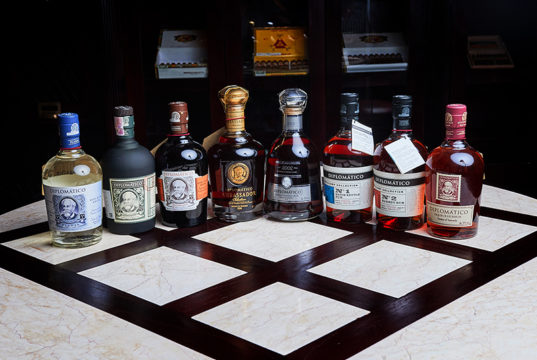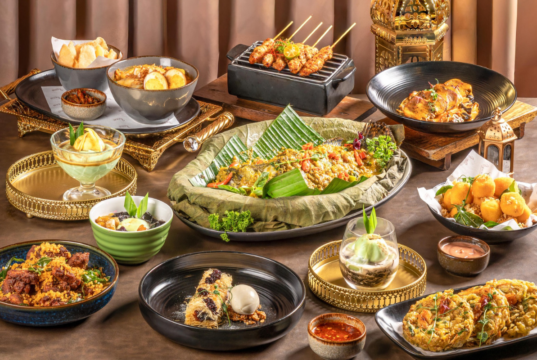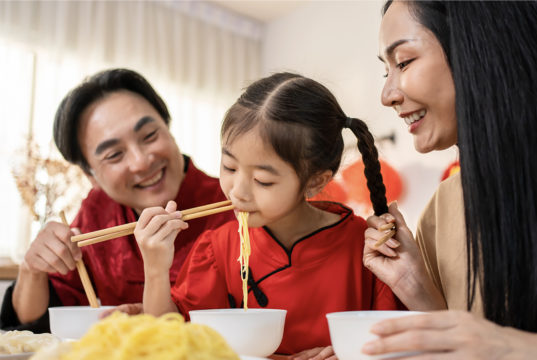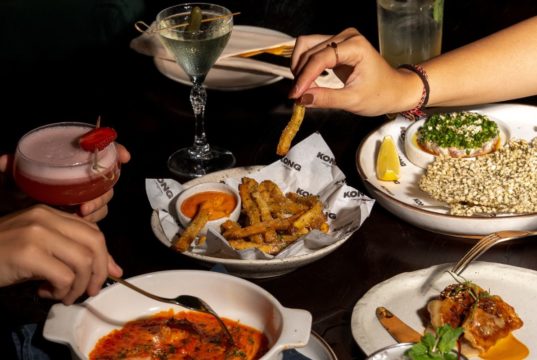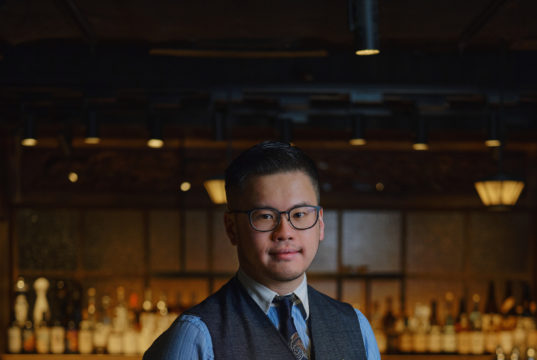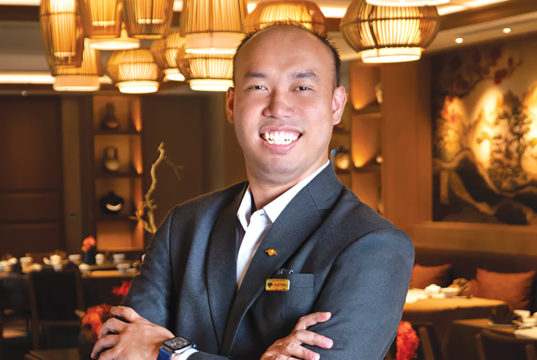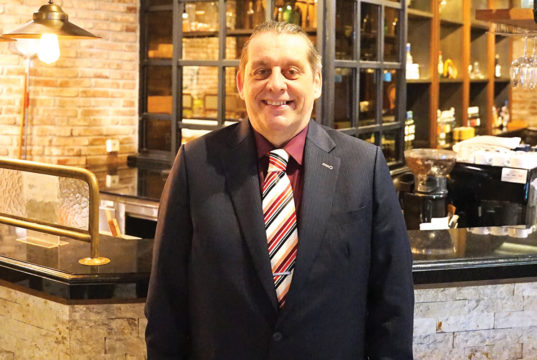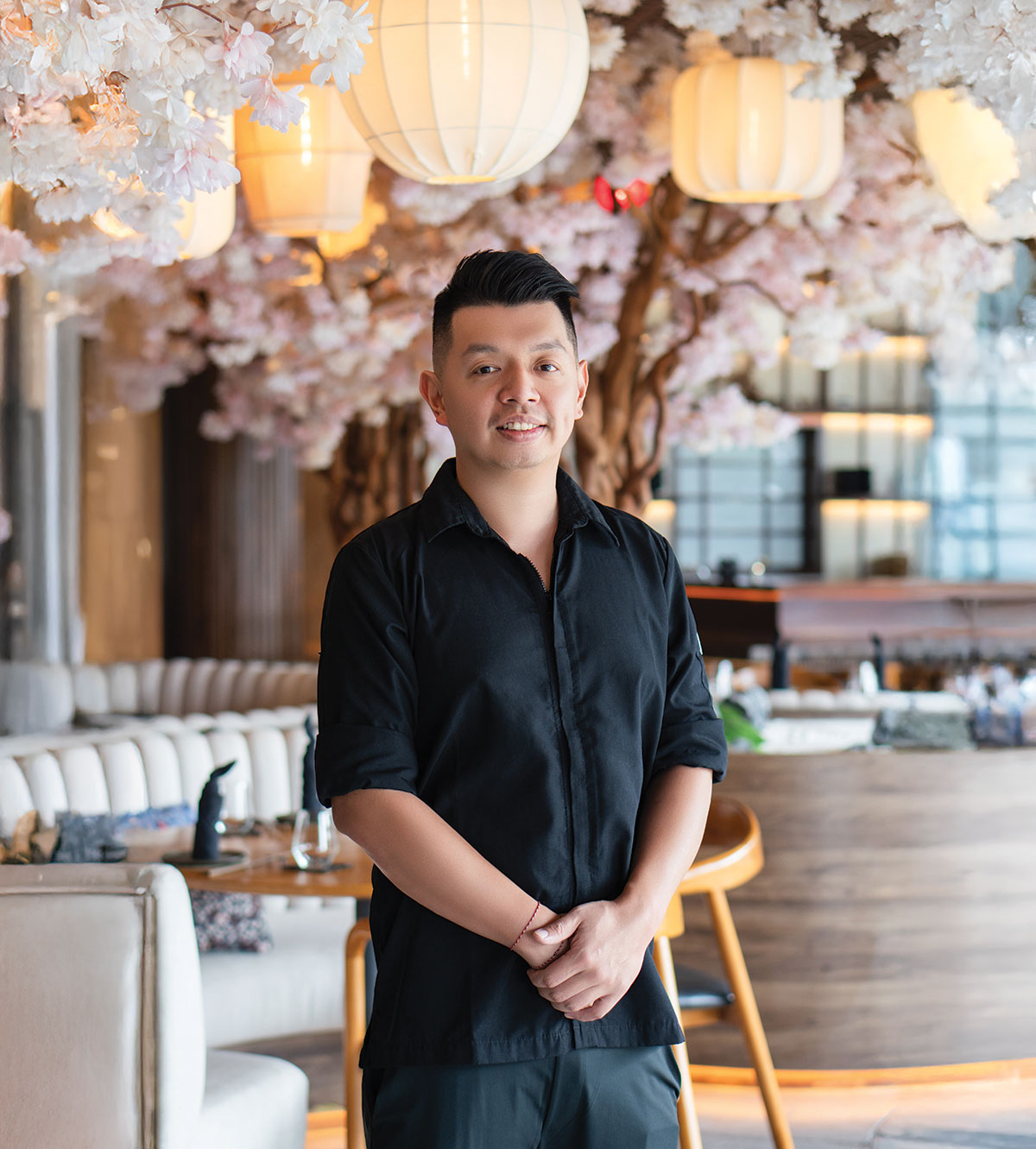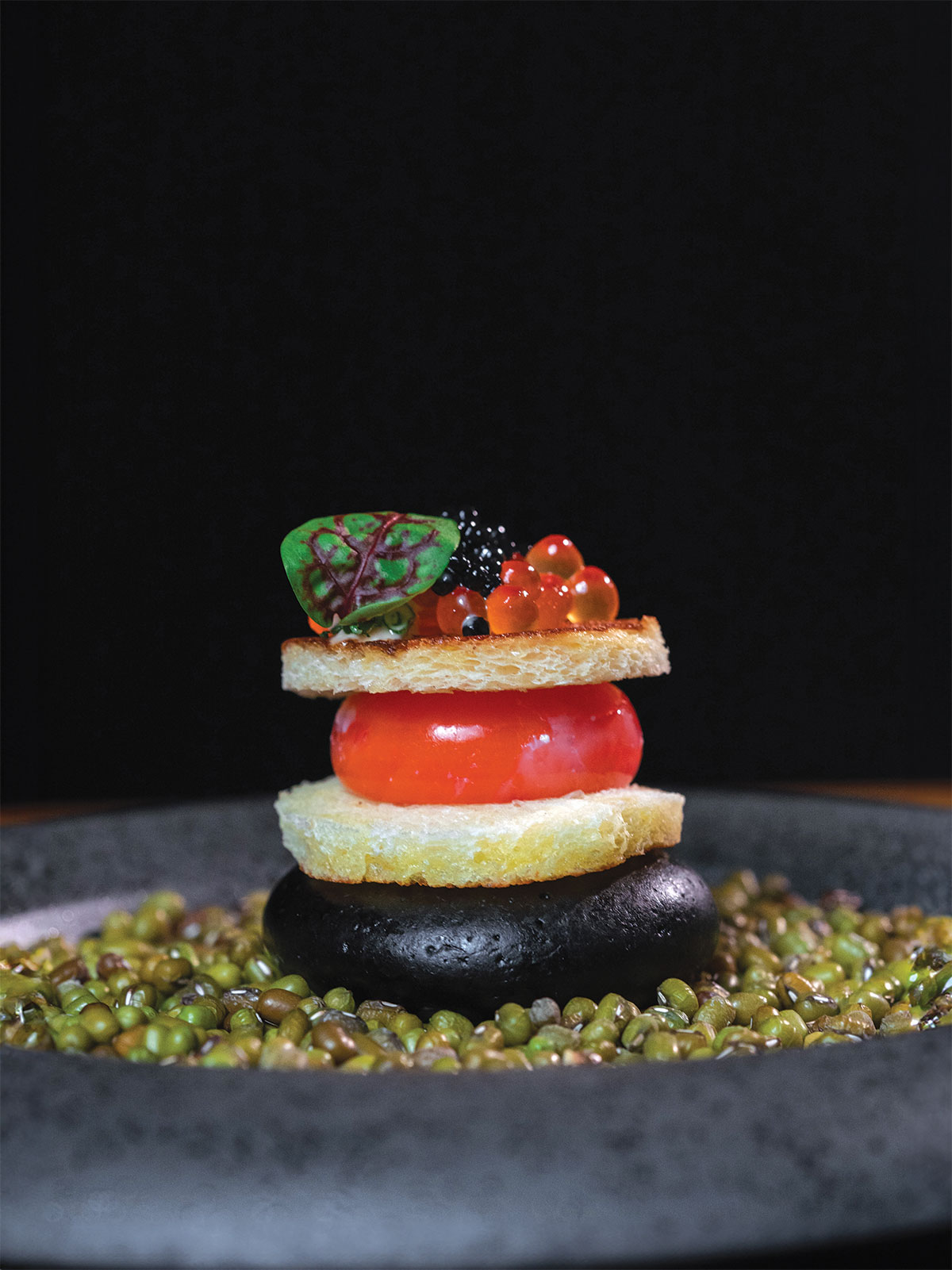From humble beginnings in Australia to leading SIKI in Bali, Chef Vincent Hiew shares his culinary journey and the personal memories that inspire his dishes, which are rooted in his childhood. He masterfully blends Japanese precision with Balinese soul to create heartfelt and harmonious flavours.
by Rizky Adityo
E : You moved to Australia at just 13 years old. Can you share the moment you realised cooking would be your life’s passion?
A: When I first moved to Australia, cooking wasn’t on my radar. I didn’t enjoy school much; academic subjects just weren’t for me. However, I was fascinated by how Western schools offered hands-on courses like automotive, carpentry, art and cooking. It made school enjoyable.
I began taking cooking classes just for fun. While my classmates had stale sandwiches in their lunchboxes, I walked out of class with freshly made carbonara. It felt great. One of my teachers noticed my potential and encouraged me to go straight into culinary school after high school. That’s where it all began.
E : What were some of the biggest cultural adjustments you faced as a young teenager arriving in Australia? How did those experiences shape your approach to food?
A: The language barrier hit me hard. I spoke English in Malaysia, but landing in a fully English-speaking environment, with slang and different accents, was tough. It took about a year to adapt. That experience made me more open-minded. I learnt to embrace different perspectives, and that openness translates into how I explore and blend flavours today.
E : You’ve worked in remarkable establishments, such as Nobu in Australia and London. What is one key lesson from those experiences that you carry into SIKI today?
A: I started at the bottom, washing dishes in small cafés, peeling bags of potatoes, before working in Italian and French restaurants, then eventually at Nobu, where I fell in love with Japanese cuisine. One thing I learnt is to just keep going and be resilient. This career isn’t easy; it requires passion and determination. But if you love what you do and keep pushing, you’ll get somewhere. That mindset applies to any profession.
E : SIKI blends Japanese traditions with Balinese flavours and global influences. How do you achieve the right balance to ensure authenticity rather than simply creating a fusion dish?
A: We don’t like the word fusion at SIKI. We prefer harmonising. We build on a Japanese foundation and weave in Balinese elements thoughtfully. Chefs have flavour memories, like muscle memory. After years of eating, tasting and working in different places, you develop an internal flavour encyclopaedia. So when creating a dish, it’s about balancing acidity, umami and texture in a way that feels natural. We’re not just mixing cuisines for novelty; we’re telling a story through flavour.
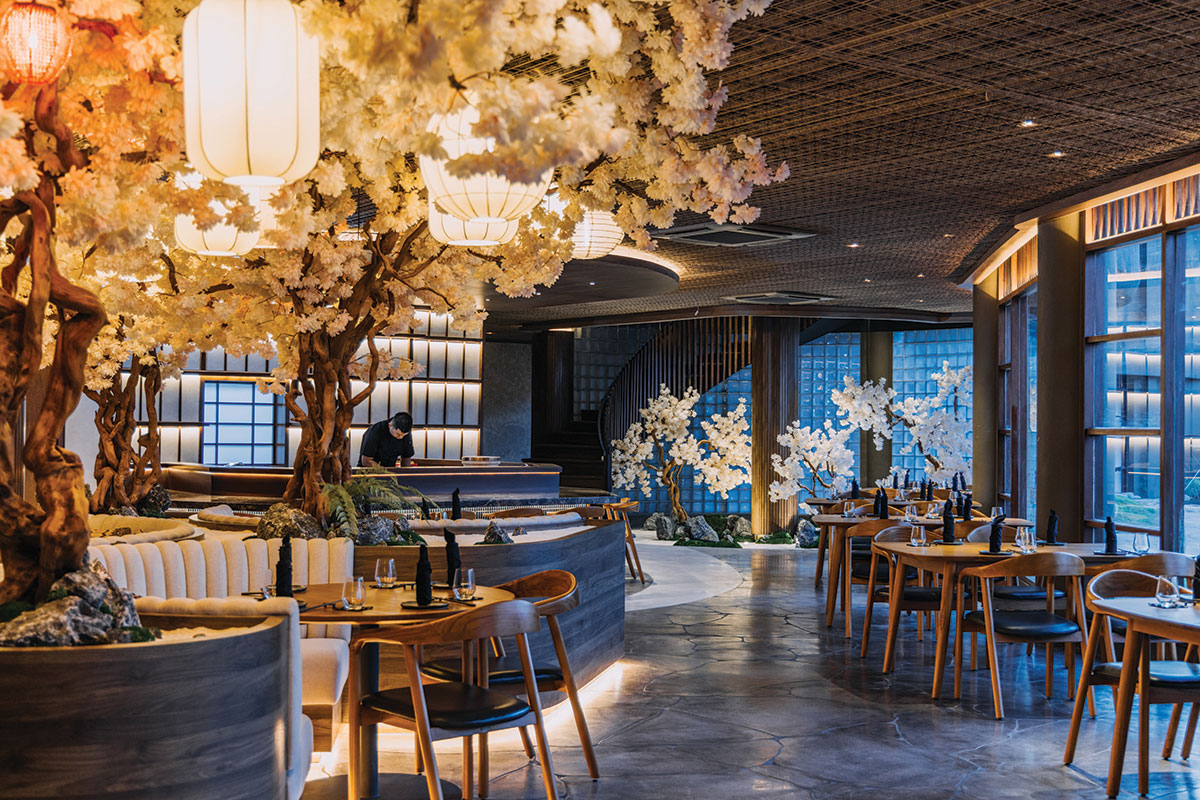 E : Which dish on SIKI’s menu feels the most personal to you?
E : Which dish on SIKI’s menu feels the most personal to you?
A: The chicken kushiyaki. It’s a classic Japanese dish, grilled chicken skewers over charcoal, but what makes it special is that it’s based on my dad’s barbecue chicken wings. He rarely made them, but when he did, they were unforgettable. That flavour is etched into my memory. After he passed away about a year and a half ago, I wanted to honour him through that dish. It’s my way of sharing a part of my childhood with our guests.
E : In such a competitive industry, how do you keep yourself inspired?
A: A lot of late-night YouTube rabbit holes and scrolling Instagram, honestly. But creativity can’t be forced. Sometimes ideas just come out of nowhere, while you’re eating, walking or even dreaming. It’s unpredictable, but staying curious and open helps keep that spark alive.
E : You’ve mentioned that success is about joy and pride, not just numbers. How do you foster that atmosphere for your team in the kitchen?
A: This industry is intense—long hours, high stress. You’ve got to really love it. So at SIKI, I try not to run things like a military camp. Yes, we take the job seriously, but we also laugh, joke and treat each other like family. It’s important that my team feels happy coming in. If they enjoy what they do, that energy shows in the food.
E : Where do you envision SIKI five years from now?
A: Hopefully, more people will know about us. We’d love to open another one or two branches, maybe outside Bali, maybe even outside Indonesia. It’s a big goal, but we’re working hard and dreaming big.
E : Lastly, if you could give one piece of advice to your 13-year-old self, what would it be?
A: Don’t waste time. Enjoy your youth, but if you already know what you want, stay focused. Push yourself to learn, grow and constantly improve.
TRI TALUH
Ingredients:
- 1 whole Omega Egg
- Brioche bread
- A dash of Japanese mustard (can be substituted with Dijon mustard)
- 1tbsp of Japanese mayonnaise
- A dash of yuzu juice
- Softened unsalted butter
- Ikura (salmon roe)
- Caviar
- Chopped chives (optional)
Method:
- In a small bowl, mix together the Japanese mustard, yuzu juice and Japanese mayonnaise until well combined. Set aside.
- Sous-vide the Omega egg at 65C for 1 hour and 10 minutes. Once done, immediately transfer the egg to an ice bath to stop the cooking process.
- Crack open the sous-vide egg, separating the yolk from the white and keeping only the yolk.
- Using two pre-sliced pieces of brioche, cut them into 5cm diameter rounds with a thickness of 5.5mm. Butter one side of each slice.
- Spread the yuzu mustard mayo on the unbuttered side of the bottom slice, place the sous-vide egg yolk on top and cover it with the second slice (buttered side out).
- Toast both sides of the sandwich with butter until golden brown and crispy.
- Finish by topping with ikura (salmon roe) and caviar, along with a small dollop of the mustard mayo. Optionally, garnish with chopped chives.
Exquisite Taste Volume 48
SIKI
W : siki.com
IG : @siki__bali




